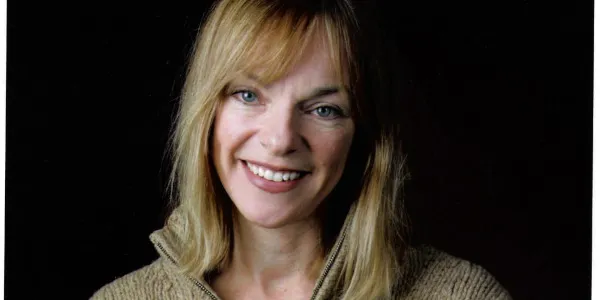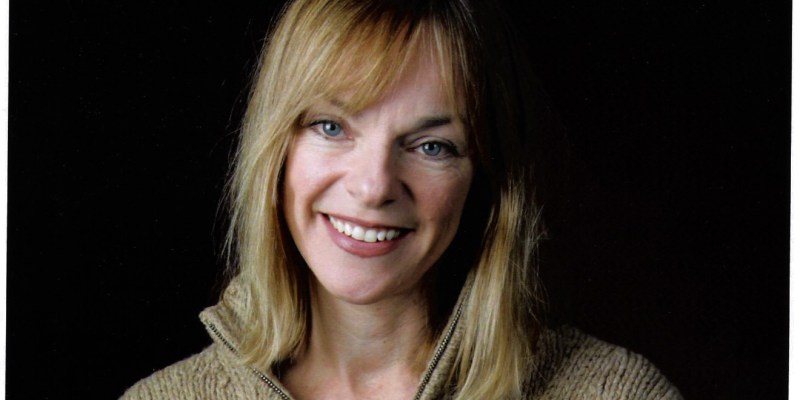
“Daring to be authentic.” That’s the way Amy Freed approaches the theater she creates, both as a playwright and as a director. Next quarter, she’ll be tackling Tom Stoppard’s “Rosencrantz and Guildenstern Are Dead” in conjunction with Shakespeare’s “Hamlet” for the Department of Theater and Performance Studies’ (TAPS) annual Undergraduate Acting Project. An artist-in-residence at TAPS, Freed is a working playwright whose works have been produced at theaters across the country. She was a Pulitzer Prize finalist for “Freedomland,” winner of the Joseph Kesselring Award and the Charles MacArther Award. We talked to her about her upcoming project as well as the state of theater today, her teaching and her life as a playwright.
The Stanford Daily (TSD): What do you think about the state of the theatre today?
Amy Freed (AF): I think that there has never been a time when there have been so many terrific living playwrights. The challenge is to find homes, venues and production opportunities, so that our writers can go from being brilliant young writers to surviving, great playwrights.
I think we are desperately in need of a National Theatre [a ground-breaking government-sponsored theatre that subsidizes ticket prices in the U.K.] that opens the doors for audiences of all demographics and also confers a kind of honor, dignity, and place to art-making in America, so it does not have to contend against the multi-million dollar monster production.
TSD: What kind of theater excites you?
AF: Theater that does something or shows something that hasn’t been done or seen before. Recklessness in the voice of the writer. Daring to be authentic.
TSD: What are the most important things you have learned in your career as a playwright and in your time teaching at Stanford?
AF: I think there’s only one lesson, and I haven’t learned it yet, and I’m still struggling with it: to survive as a practicing writer or artist, you have to stay incredibly vigorous, hopeful, open, and happy in your spirit. You cannot buy into the careerism of what is essentially a pursuit of the spirit and is almost a curse as much as it is a blessing.
Keeping yourself free from disappointment and bitterness and keeping your ear attuned to your own work is the ongoing challenge for anybody who is seriously an artist or writer. I find teaching a tremendous help for me, in that way, because it’s something that I enjoy, that keeps me out of the more toxic backwaters of depression, anxiety and competition, which haunt any creative profession.
Learning how to live with equanimity, no matter what fortune brings, is the lesson you have to keep instilling and re-instilling, because the theater keeps going up and down – it’s a very manic-depressive world.
TSD: What advice do you have for playwrights starting out?
AF: Form a collective and self-produce. Create a company. Launch your work. Shove yourself forward. Don’t wait for anybody to come find you.
TSD: Can you talk about the upcoming production of “Rosencrantz and Guildenstern are Dead” [a play by Tom Stoppard that tells the story of two minor characters from Shakespeare’s “Hamlet”] that you are directing?
AF: This is the fifth iteration of a project, unique to Stanford, that I developed with a colleague here five years ago to address how to do really good arts practice on campus within the academic structure. It’s so hard to study and rehearse a play because of the time involved, and I’ve always believed that the best theater is smart theater and that theater can be a fantastic way into topics and ideas. There will be a company of 24 undergraduates who will be working together to deliver both plays and are in the same seminar exploring the topics and the background of those plays.
We chose to do “Hamlet” this year, and [to] follow through and enlarge this idea by doing a related play, “Rosencrantz and Guildenstern are Dead,” so we could look at both the classical play and a modern refraction of those themes. “Hamlet” and “Rosencrantz” are a great pairing. Two great playwrights – one dead and one living – and an enormous array of major subjects. “Hamlet” was the play that, in the views of some scholars, invented the “modern.” And “Rosencrantz and Guildenstern,” when it was first produced, was the play that was said to have changed the face of modern theatre.
TSD: Is there anything else you would like to add?
AF: I think it would be a really interesting thing, and I think it would be really provocative, if some of the arts-interested students at Stanford took it upon themselves to create a sort of think tank about the field and what’s next.
I think we could really use a kind of referendum on campus about arts and its place in American culture. The arts are really under siege. Budgets are being cut in high schools everywhere.
It seems like Washington needs to hear the language from citizens. We’ve had a poisonous political culture, and the arts have been sacrificed to it. It puts America way down on the list of nations in the world, and that’s a disgrace. We’re a smart country and there are brilliant young people, and I think there’s a national rallying cry that students can really be a part of when they know about the issues.
Auditions for “Hamlet” and “Rosencrantz & Guildenstern are Dead” will be held from Nov. 10-12 at 7-10 p.m. in room 129 of Memorial Auditorium.
Contact Steven Rathje at srathje ‘at’ stanford.edu
